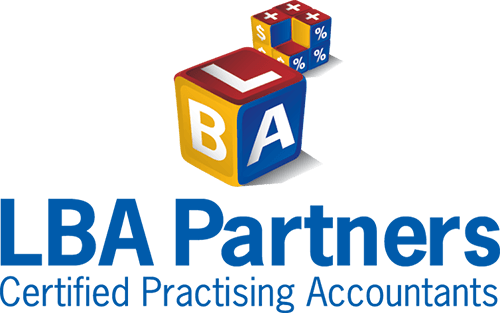Here's our latest newsletter, if you would like to follow up any of the information please contact Linda or Grahame
P r a c t i c e U p d a t e
April 2014
Change in the FBT rate – 2014/15
FBT Rate – 2013/14 & 2014/15
The FBT rate of tax has been increased by half a percent from 1 April 2014. The new rate of tax and the consequent increased gross-up rates follow:
| FBT Year Ended | Rate of Tax |
|---|---|
| 31 March 2015 | 47.0% |
| 31 March 2014 | 46.5% |
Gross-up Rates – 2013/14 & 2014/15
| Description | Gross-up Rate | Gross-up Rate |
|---|---|---|
| 2013/14 | 2014/15 | |
| Type 1 | 2.0647 | 2.0802 |
| Type 2 | 1.8692 | 1.8868 |
Editor: With the increase in the FBT rate to 47% from 1 April 2014, it's important that employers immediately adjust their salary sacrifice arrangements with their employees. If you need a hand with this, please call our office.
Small business panel to boost ATO's expertise
Editor: The ATO has issued a media release in relation to a new small business consultancy panel. As positions on the panel are paid, some clients may wish to consider applying.
The ATO is inviting Australia's small business owners to apply to join its new 'small business consultation panel' to help cut red tape and boost the ATO's small business expertise.
The consultation panel will bring together small business operators with:
- at least two years experience running a business; and
- an annual turnover of less than $2 million.
Note that taxation, consulting or accounting experience is not necessary.
ATO Second Commissioner Neil Olesen said: "We encourage small business owners from a range of industries to apply to join the panel so they can help shape the future of how the ATO and other government agencies interact with small business.
"Our objective for the panel is to explore opportunities to reduce the time it takes for business operators to comply with their employer, super and tax obligations so they can get back to the important job of running their small business."
Business operators joining the panel may be contracted on a short-term, as-needs basis to participate in consultation activities (including workshops and user testing) to provide feedback from a small business perspective.
Successful applicants will be paid for their services.
Interested small business operators should email smallbusinessconsultation@ato.gov.au to request an information and application pack, or download the information from www.tenders.gov.au (search for ATM 14.008a).
GIC and SIC rates for June 2014 quarter
| GIC annual rate | 9.63% |
|---|---|
| GIC daily rate | 0.02638356% |
| SIC annual rate | 5.63% |
| SIC daily rate | 0.01542466% |
Also, the Interest rate on Overpayments, Interest rate on Early Payments and Delayed Refunds Interest rate is 2.63%.
Why we must all exercise great care with super at year end
Editor: This case involves a taxpayer being penalised with excess contributions tax (ECT) because payments that his bookkeeper was supposed to make in the 2009 and 2011 years inadvertently all ended up in the 2010 year. As is often the case with ECT, this all ended in tears.
The taxpayer was the sole director of his company and a member of a superannuation fund with AMP Life Limited.
On 30 June 2009, his bookkeeper made two payments by Bpay to his AMP account, one salary sacrifice payment of $30,000 and an employer contribution of $8,499 for the 2008/09 year.
However, each of the two payments was received by AMP and applied to the taxpayer's AMP account on 1 July 2009.
On 27 May 2010, the bookkeeper made a payment of $13,970.66 as a salary sacrifice payment to his AMP account. This payment was incorrectly paid several weeks early as it was meant to be paid in July 2010.
In September 2011, the Commissioner issued a notice of assessment for ECT of $16,905.20 in respect of excess concessional contributions of $53,667.42 for the year ended 30 June 2010.
Editor: Long story short – the taxpayer objected, was knocked back, and then appealed to the Federal Court. Basically, the Judge disallowed the appeal saying that, as the taxpayer was in a position to supervise and control the actions of the bookkeeper, he was responsible for the mistakes that she had made.
SMSF trustees may soon be fined for breaches by their fund
Editor: In the ATO's latest edition of its "SMSF News", it cautions trustees of self-managed superannuation funds (SMSFs)about new penalty provisions that are coming into play on 1 July.
Newly enacted legislation will apply to impose penalties on trustees for contraventions occurring in their super fund from 1 July 2014.
They will also apply to contraventions that were made prior to 1 July 2014 and continue after that date.
For example, if a fund has lent money to a member or relative and the loan still exists on or after 1 July 2014, the trustee will be liable for a penalty.
Under the measures, penalties will vary according to the type of breach. In the example above:
- Each individual trustee would be personally liable for a penalty of $10,200.
- For an SMSF with a corporate trustee, each director would be jointly and severally liable for a penalty of $10,200.
The penalty cannot be paid using the resources of the SMSF.
The ATO says that if trustees are making progress in resolving contravention(s) by 1 July 2014, it would consider these circumstances in any request to remit any imposed administrative penalties.
Super caps increased for 2014/15
The ATO has announced the following changes to the superannuation contributions caps.
Concessional contributions cap
These include:
- employer contributions (including those under a salary sacrifice arrangement); and
- personal contributions claimed as a tax deduction by a self-employed person.
The amount of the cap will be increased from $25,000 in 2013/14 to $30,000 in 2014/15.
Non-concessional contributions cap
Non-concessional contributions include personal contributions for which taxpayers do not claim an income tax deduction.
The amount of the cap will be increased from $150,000 in 2013/14 to $180,000 in 2014/15.
Please Note: Many of the comments in this publication are general in nature and anyone intending to apply the information to practical circumstances should seek professional advice to independently verify their interpretation and the information's applicability to their particular circumstances.
Management Consulting
We have the know-how and experience to offer advice that helps you run your business more effectively.
Self-Managed Superannuation Funds
At LBA Partners we provide the professional advice you need to manage your own fund and greatly simplify the process for you.



